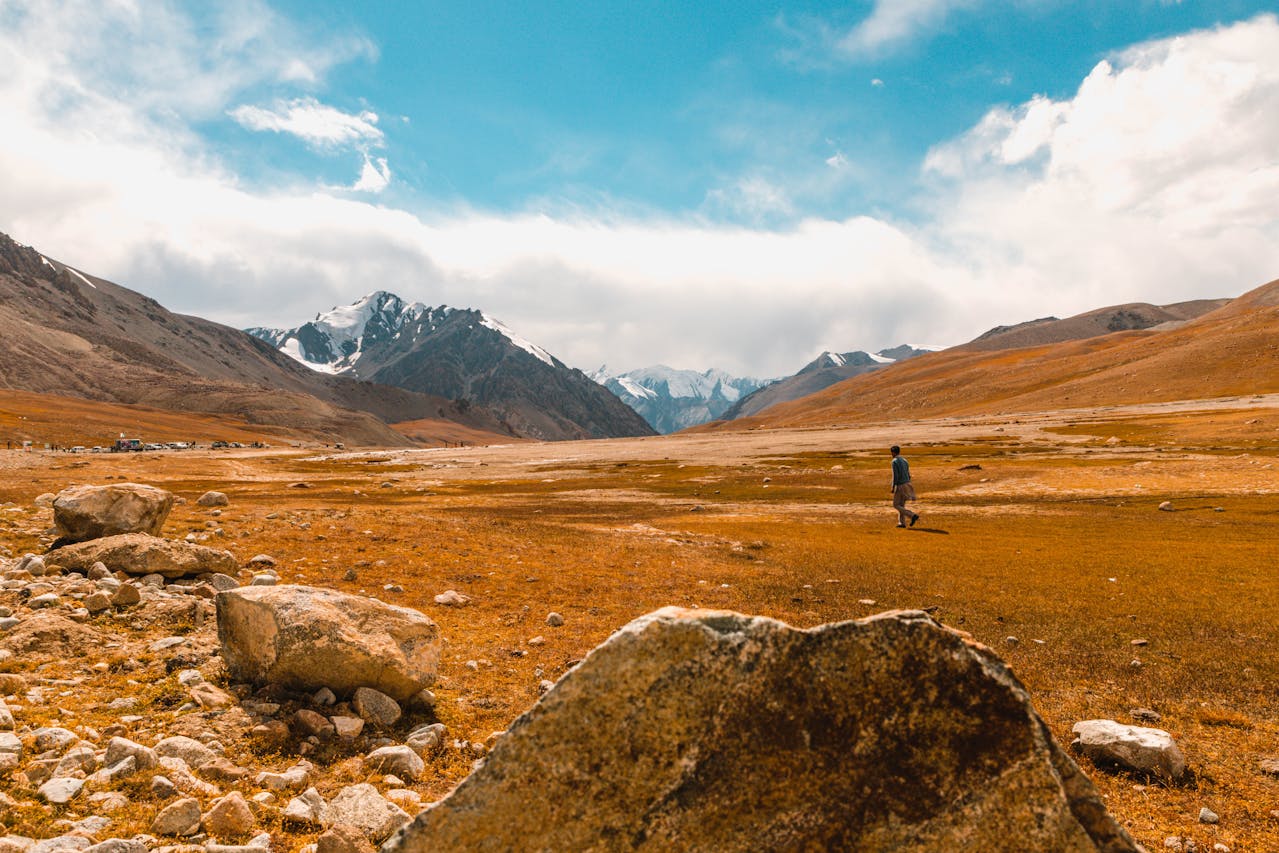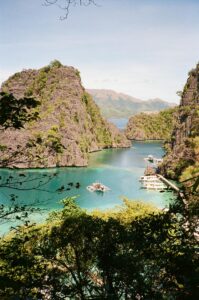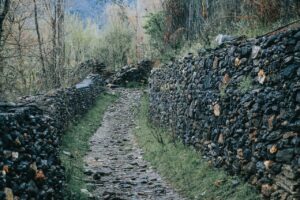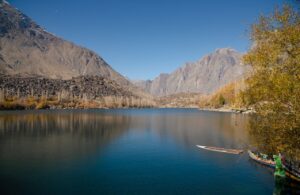Introduction
Tucked away in the northern reaches of Pakistan, the best eco-friendly travel experiences in the Karakoram Range offer a rare combination of untouched wilderness, rich local culture, and conscious adventure. Far from the typical tourist routes, this majestic mountain range invites responsible travelers to explore its towering peaks, ancient glaciers, and serene valleys in a way that protects and preserves the environment. Whether you’re a nature lover, an ethical adventurer, or someone simply seeking meaningful travel, the Karakoram delivers with low-impact treks, sustainable accommodations, and authentic community-based tourism. In this guide, we’ll explore how to enjoy the Karakoram’s beauty responsibly—without leaving a trace behind.
Table of Contents
Why Choose Eco-Friendly Travel in the Karakoram Range?
The Karakoram Range is one of the most pristine and ecologically sensitive regions in the world. Stretching across northern Pakistan, it is home to towering peaks like K2, ancient glaciers, high-altitude deserts, and unique communities with centuries-old traditions. While tourism can bring economic opportunities to this remote region, it can also pose serious threats to its delicate ecosystems if not managed responsibly.
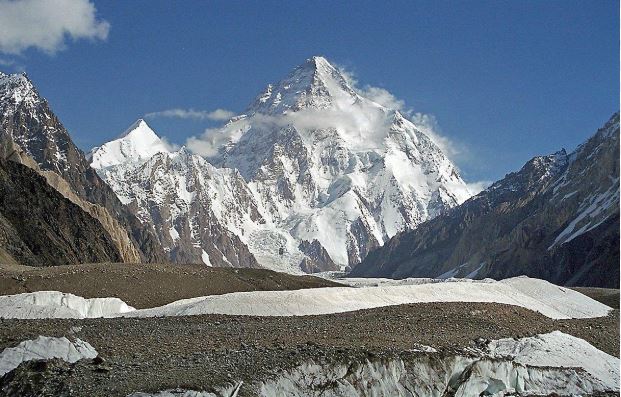
Preserving Natural Beauty
Eco-friendly travel helps minimize environmental damage in areas where the balance of nature is already fragile. The Karakoram is rich in biodiversity, with rare species like the snow leopard, Himalayan brown bear, and ibex. Choosing sustainable practices—such as avoiding single-use plastics, staying on marked trails, and reducing vehicle emissions—ensures that this natural beauty remains intact for future generations.
Reducing Over-Tourism and Pollution
Unlike mass tourism, eco-travel promotes low-impact activities like trekking, cycling, and cultural immersion. These experiences limit crowding, reduce noise pollution, and create less waste. In places like Hunza and Skardu, where tourism has grown rapidly, sustainable travel practices are crucial to prevent overuse of natural resources and ensure the long-term viability of the region.
Connecting More Deeply with Nature and Culture
Eco-friendly travel is not just about the environment—it’s about meaningful experiences. In the Karakoram, you can share meals with local families, learn ancient mountain survival skills, and witness untouched landscapes in their raw beauty. These slow, respectful interactions offer a deeper understanding of both the land and the people who live there.
Setting a Positive Example
Every eco-conscious traveler becomes an ambassador for sustainability. By making mindful choices—like using reusable gear, respecting wildlife, and avoiding harmful tour operators—you set an example for others. Your behavior can influence future visitors, support local conservation efforts, and help shift the tourism industry toward more responsible practices.
Top Eco-Friendly Destinations in the Karakoram Range
While Hunza and Skardu often grab the spotlight, there are several lesser-known destinations in the Karakoram Range that are equally stunning—and even more committed to eco-friendly tourism. These hidden gems are perfect for travelers who want to experience the region’s raw beauty while supporting sustainable practices and local communities.
1. Shimshal Valley – Community-Led Sustainability
Tucked away in the upper Hunza region (but distinct from mainstream Hunza tourism), Shimshal is one of the most remote and high-altitude villages in the Karakoram. It’s also a pioneer in community-based tourism and conservation.
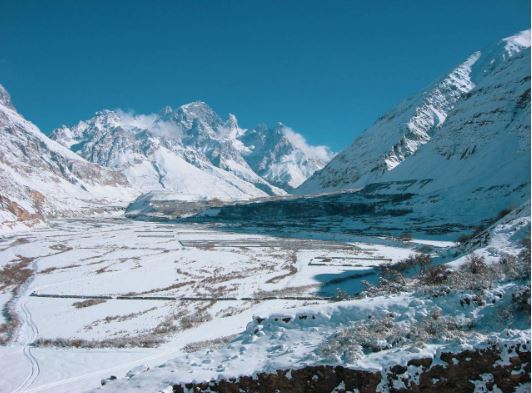
Why It’s Eco-Friendly:
- Locally trained guides lead all treks and expeditions, ensuring income stays within the community.
- Homestays use traditional mud-brick homes, solar heating, and locally grown produce.
- Residents practice glacier farming and are involved in climate resilience education.
Top Activities:
- Trek to Shimshal Pass or Minglik Sar Base Camp with local guides.
- Stay with a host family and participate in organic farming or yak herding.
- Attend community-led workshops on mountaineering and glacier monitoring.
2. Gojal Valley – High-Altitude Tranquility and Grassroots Conservation
Located north of central Hunza, Gojal includes villages like Gulmit, Ghulkin, Sost, and Passu. These areas remain less crowded and have embraced sustainable travel through local initiatives and eco-tourism training programs.
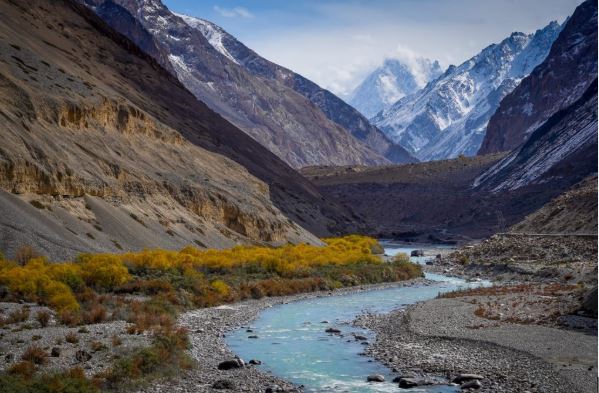
Why It’s Eco-Friendly:
- Family-run guesthouses offer locally sourced meals, waste-reduction practices, and eco-conscious experiences.
- Conservation groups work on tree-planting drives and glacier preservation.
- Cycling and hiking are promoted over motorized tourism.
Top Activities:
- Explore Passu Glacier with trained local eco-guides.
- Visit Boritt Lake, a wetland area ideal for peaceful walks and birdwatching.
- Learn traditional cooking and handicrafts from local women entrepreneurs.
3. Khunjerab National Park – High-Altitude Wildlife Sanctuary
Sitting on the Pakistan-China border, Khunjerab National Park is one of the most ecologically important areas in the region. Its high-altitude plains and mountain passes are home to endangered species and some of Pakistan’s most ambitious conservation efforts.
Why It’s Eco-Friendly:
- Strict eco-regulations on tourist vehicles, waste management, and camping.
- Home to snow leopards, Marco Polo sheep, and ibex.
- Eco-ranger stations use solar energy and work with local communities.
Top Activities:
- Join a wildlife-watching tour with conservation-aware guides.
- Stop by the Khunjerab Visitor Center to learn about biodiversity protection.
- Participate in eco-education programs hosted by the park.
4. Hopper Valley – A Glacial Wonderland with Local Touch
Located in Nagar District, near the southern edge of the Karakoram, Hopper Valley is known for its dramatic glaciers and traditional lifestyle. It’s a growing destination for those seeking solitude and sustainability.
Why It’s Eco-Friendly:
- Community-run guesthouses offer clean, eco-conscious lodging with mountain views.
- The area sees minimal tourist traffic, preserving its glacial ecosystems.
- Local families grow organic wheat, potatoes, and fruits using ancient farming methods.
Top Activities:
- Trek to Hopper Glacier and Rush Lake, one of the world’s highest alpine lakes.
- Take part in bread-making or fruit-drying activities with host families.
- Explore the women-led craft markets selling handwoven rugs and local jams.
5. Misgar Valley – Remote and Untouched Beauty
Just south of the Khunjerab Pass lies Misgar, a high-altitude settlement that remains almost untouched by commercial tourism. It is ideal for those who seek immersive, low-impact travel experiences.
Why It’s Eco-Friendly:
- Only small-scale tourism is permitted, helping preserve the area’s fragile ecosystem.
- Residents promote agro-tourism and wildlife conservation education.
- Limited vehicle access means most exploration is done on foot.
Top Activities:
- Hike to Dilkot Pass or Qalandarchi, offering views of snow-capped giants.
- Camp under the stars with a local guide trained in eco-safety.
- Learn about local plant medicine and traditional ecological knowledge.
6. Hushe Valley – Eco-Trekking in Baltistan’s Quiet Corner
Located in Ghanche District, Hushe Valley is the starting point for several famous treks in the Karakoram, including those leading to Masherbrum and Gondogoro La. Yet, it remains less crowded and far more authentic than nearby Skardu.
Why It’s Eco-Friendly:
- Locally organized trekking companies follow Leave No Trace principles.
- Guesthouses use locally sourced stone and timber in their architecture.
- Tourism revenue supports community schools and health clinics.
Top Activities:
- Trek to Charakusa Glacier, a paradise for mountaineers and photographers.
- Join a cultural night in a local home with Balti music and traditional dishes.
- Support village cooperatives that craft eco-products from yak wool and wood.
Best Eco-Friendly Treks in the Karakoram Range
Trekking in the Karakoram Range is one of the best ways to connect with nature while minimizing your impact. The following treks are managed with community support, responsible tourism practices, and respect for the local ecosystem—ideal for travelers who care about sustainability.
1. Shimshal Pass Trek – A Model of Community-Led Eco-Trekking
Duration: 6–10 days
Difficulty: Moderate to Difficult
Elevation: ~4,735 meters
This high-altitude trek, operated by the local Shimshal community, is a benchmark for sustainable adventure in Pakistan.
Eco-Friendly Highlights:
- Community-run campsites and homestays with traditional materials and local food
- Locals trained as trekking guides and porters
- Supports local conservation, including glacier and reforestation efforts
2. Rush Lake Trek – A Short, High-Reward Adventure
Duration: 4–6 days
Difficulty: Moderate
Elevation: ~4,694 meters
Accessible via Nagar’s Hopper Valley, this trek offers incredible views with minimal infrastructure or ecological disruption.
Eco-Friendly Highlights:
- Entire route is foot-access only—no roads or vehicles
- Guided by locals who prioritize waste control and trail preservation
- Campsites are managed responsibly with a pack-in, pack-out policy
3. Charakusa Valley Trek – A Hidden Gem in Hushe
Duration: 7–10 days
Difficulty: Moderate
Elevation: ~4,600 meters
This off-the-beaten-path trail in Baltistan provides spectacular views and quiet trails far from the tourist crowds.
Eco-Friendly Highlights:
- Managed by local cooperatives using Leave No Trace methods
- Porters and guides are native to the valley
- Minimal permanent infrastructure reduces long-term environmental impact
4. Snow Lake (Lukpe Lawo) Trek – High Adventure with a Low Footprint
Duration: 15–18 days
Difficulty: Difficult
Elevation: ~5,030 meters
This advanced-level trek crosses vast glaciers and rugged high-altitude terrain, offering unmatched wilderness.
Eco-Friendly Highlights:
- Operated by experienced, small expedition teams only
- No permanent camps—everything is carried in and out
- Strict conservation practices help preserve glacial zones
5. Borith to Passu Glacier Trek – Easy and Impact-Free
Duration: 1–2 days
Difficulty: Easy to Moderate
Elevation: ~3,300 meters
A scenic and beginner-friendly trek with big views and minimal environmental disruption.
Eco-Friendly Highlights:
- Entire trek can be done on foot from local eco-guesthouses
- Local guides teach about glacial erosion and climate awareness
- Community-based tourism helps reduce dependence on outside operators
6. Miar Glacier and Phuparash Peak Base Camp – Untouched and Ethical
Duration: 5–7 days
Difficulty: Moderate
Elevation: ~4,200 meters
This lesser-known trail in Nagar Valley offers glacial vistas without the overuse that plagues some popular routes.
Eco-Friendly Highlights:
- Operated by local trekking groups using ethical, low-impact practices
- Emphasis on waste reduction, reusable supplies, and campsite discipline
- Supports small village economies and local conservation groups
Tips for Eco-Friendly Trekking in the Karakoram
- Hire local: Choose local guides and porters to reduce outside dependency and support the local economy.
- Say no to plastic: Use refillable bottles, reusable bags, and biodegradable soap.
- Stick to the path: Avoid damaging fragile vegetation by staying on marked trails.
- Respect wildlife and people: Observe quietly, ask for photo permission, and learn a few local words.
- Leave no trace: Pack out everything you bring in, including biodegradable waste.
Final Thoughts: Travel with Purpose in the Karakoram Range
The Karakoram Range is one of the last truly wild frontiers on Earth—home to soaring peaks, ancient glaciers, remote villages, and rich cultural traditions. But with such natural and cultural richness comes a responsibility: to explore without exploiting. Eco-friendly travel in this region isn’t just a trend—it’s a necessity. Whether you’re choosing low-impact treks, staying in sustainable lodges, or supporting community-based tourism, every small decision adds up. By traveling responsibly, you help preserve fragile ecosystems, empower local communities, and ensure that future generations can also experience the untouched beauty of the Karakoram. As tourism slowly grows in these remote areas, your role as a conscious traveler becomes even more important. Let your adventures be a force for good—not just for you, but for the land, the people, and the planet.
FAQ
Question1. Are there eco-friendly places beyond Hunza and Skardu?
Answer. Yes—Shimshal, Misgar, Hopper, and Hushe offer authentic, low-impact travel experiences.
Question2. How can I trek responsibly in the Karakoram?
Answer. Hire local guides, carry reusable gear, and follow Leave No Trace principles.
Question3. Do locals benefit from eco-tourism?
Answer. Absolutely. Many run eco-lodges, guide treks, and lead conservation efforts.

